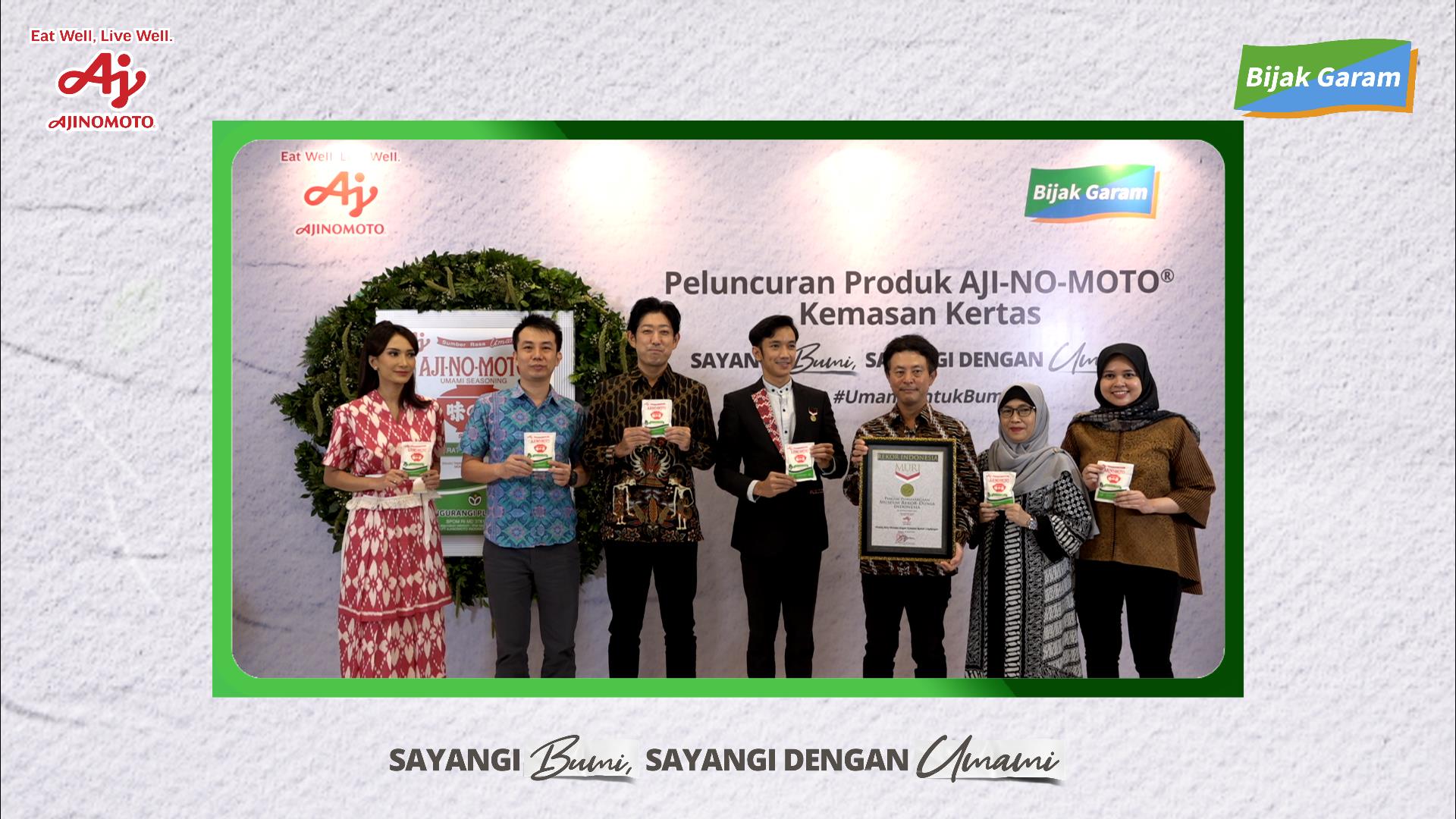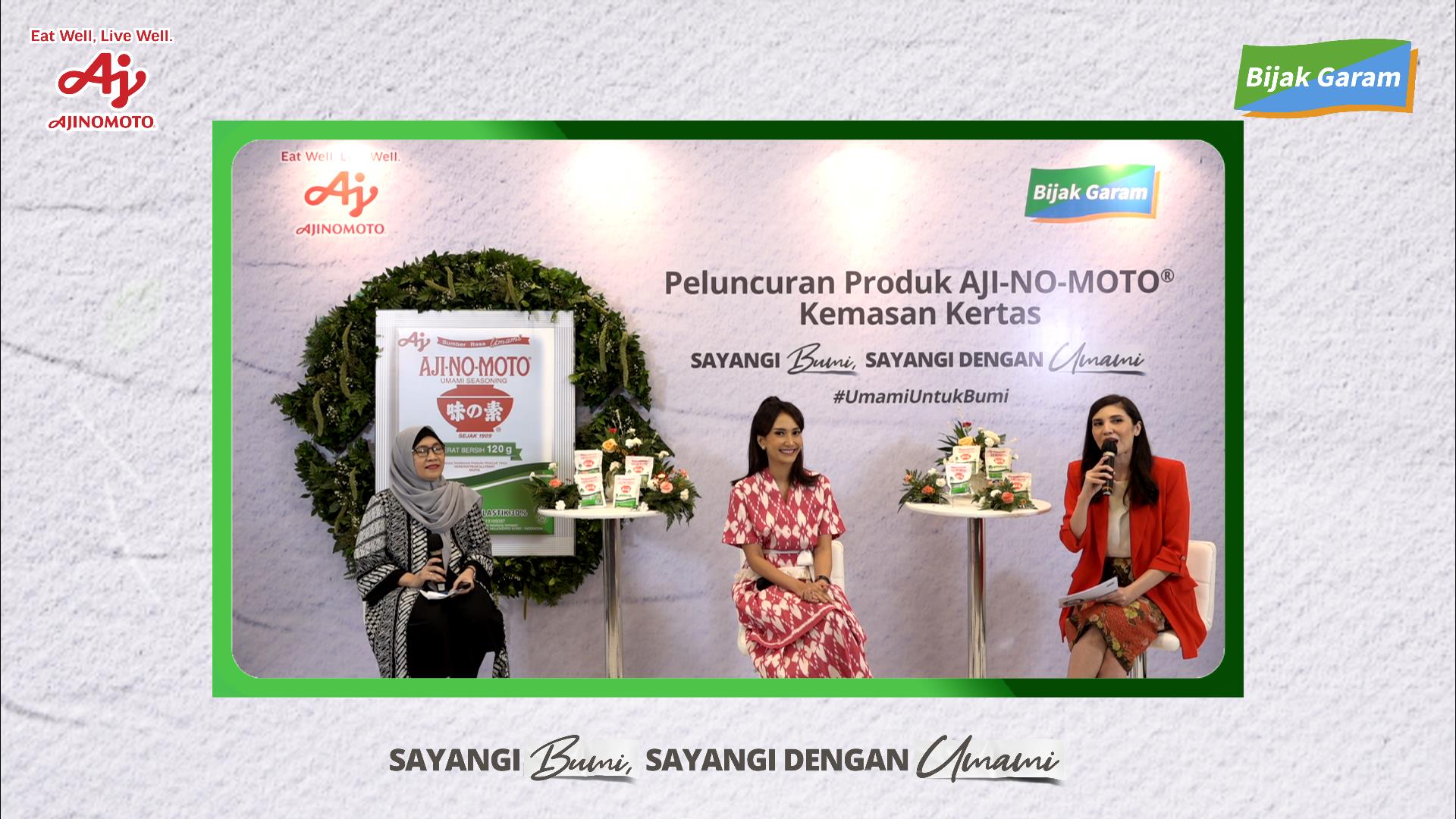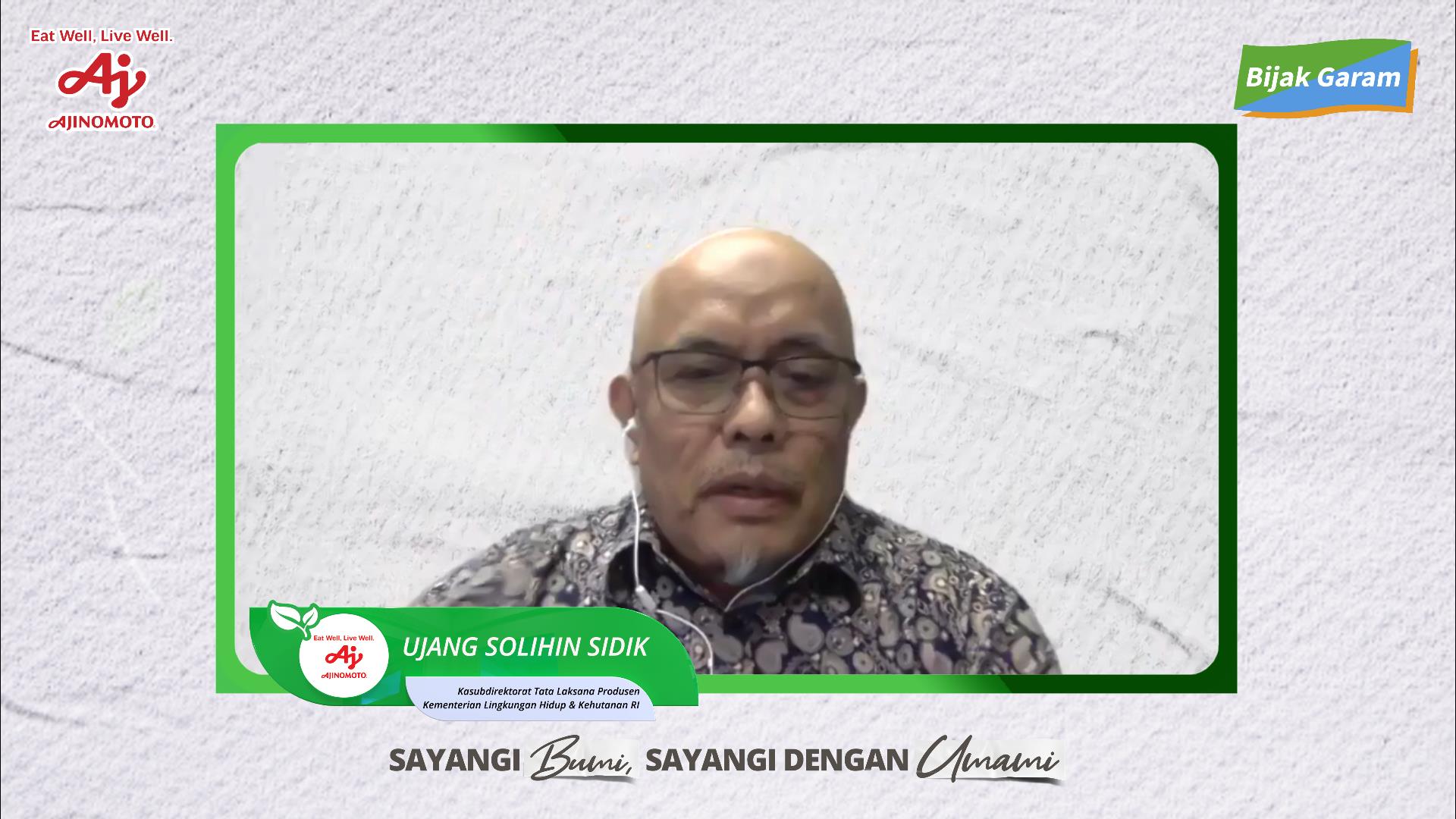Jakarta 22 April 2022 – Plastic waste is still one of the environmental problems in Indonesia nowadays. Based on data from The World Bank 2021, Indonesia produces around 7.8 million tons of plastic waste every year. As much as 4.9 million tons of plastic waste is not managed properly, for example not collected, dumped in open dumps, or leaking from landfills that are not managed properly. The Indonesian government every year makes various efforts to reduce the amount of plastic waste, one of which is by implementing a policy of banning single-use plastic bags in traditional markets, modern supermarkets, and minimarkets, starting July 2020.

PT AJINOMOTO INDONESIA continues to innovate and is also committed to supporting the government to reduce the use of plastic, one of which is by launching the AJI-NO-MOTO® MSG product that uses paper packaging. "This is a form of our efforts to realize the company's responsibility and commitment in preserving the environment in Indonesia by sticking to the Ajinomoto Shared Value (ASV) as the company's basis in contributing to environmental sustainability. We also always strive to always comply with government regulations regarding the management of plastic waste and other environmental impacts in order to preserve a green Indonesia," explained Rina Sukaesih, Corporate Planning Director of PT AJINOMOTO INDONESIA.

Ujang Solihin Sidik, Head of the Sub-directorate of Producer Management, Ministry of Environment and Forestry emphasized, “The problem of plastic waste is indeed an increasingly complex challenge faced by Indonesia. The government always makes various efforts through policies and regulations made to encourage the practice of reducing plastic waste through the implementation of integrated waste management from upstream to downstream with a full life cycle approach from plastic. The government is also aggressively inviting business actors to be responsible for reducing product waste, product packaging, containers or containers from the design, production, distribution, retail, consumption and post-consumption processes while still handling the waste produced in the production process properly.”

An environmentalist, Artika Sari Devi Ibrahim, was also present and shared stories about adopting a more environmentally friendly lifestyle. "We need to implement this as early as possible and we can do this by inviting people from the closest environment such as family to do good habits that can be applied at home, such as: implementing the 3R system (reduce, reuse, recycle), using environmentally friendly products, sorting waste, saving water, reducing the use of single-use plastics, and trying to make compost with the children,” she said.
Putri Astriani, Brand Manager of PT AJINOMOTO INDONESIA added, “Currently, Indonesian people, especially Gen-Z are increasingly aware of being more concerned about environmental sustainability. In terms of choosing products, Gen-Z is also more concerned with values that are not only beneficial for themselves, but also beneficial for others and the environment around them.”
The company took concrete steps in environmental conservation by making modifications, namely reducing the use of plastic and replacing it with paper in product packaging. “With the innovation of AJI-NO-MOTO® Paper Packaging, we can reduce plastic use by up to 30%. In addition, we also reduce the use of plastic in other products such as: Masako® 8.4% in each 9gr package and Sajiku 9.5% in each package. With the launch of the MSG AJI-NO-MOTO® Paper Packaging, we also got the MURI record as the first MSG seasoning in Indonesia with environmentally friendly packaging” added by Putri.
Currently, AJI-NO-MOTO® with paper packaging can be found at the Ajinomoto Official Store on various E-Commerce platforms, such as Tokopedia, Lazada, Bukalapak, Blibli.com, and Shopee. Furthermore, AJI-NO-MOTO® products in environmentally friendly packaging can also be purchased at supermarkets in the Java Island area such as AEON, Lulu Market, Yogya, to All Fresh.
In every product produced, PT AJINOMOTO INDONESIA applies an environmentally friendly production process. The PT AJINOMOTO INDONESIA factory in Mojokerto has made various efforts to achieve Zero Waste which is an effort to minimize and reduce environmental pollution to zero. Various efforts have been made including reducing carbon emissions, reducing water consumption, implementing Bio-Cycle & Eco-Activity which produces co-products such as AJIFOL Fertilizer, AMINA, FML animal feed raw materials, and improving waste water management so that when it is channeled to the Brantas River the quality is the water becomes better and cleaner.
PT AJINOMOTO INDONESIA is also committed to supporting environmental conservation by reducing water use by up to 35% by making savings through water quality improvement (water treatment) in every production activity. This commitment is also a form of participation in the success of the Indonesian Government's environmental conservation program and in line with Ajinomoto Co., Inc's aspiration to reduce environmental impact by up to 50% until 2030. This step also aims to maintain the availability of water on a regional scale, so that it can help overcome limited water resources due to increased water consumption, especially during the pandemic.
Through these steps, PT AJINOMOTO INDONESIA hopes to inspire many parties to carry out other movements with the aim of preserving the environment. PT AJINOMOTO INDONESIA is consistent in making a positive contribution to society by improving the welfare and health of Indonesian families through high quality products and services.